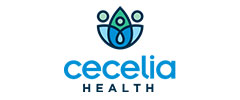David Weingard, CEO and founder of Cecelia Health, traces the beginning of his company to the day, at 36 years old, he walked into a doctor’s office and was told he had Type 1 diabetes, also known as juvenile diabetes.
“I had no energy, and when I stepped on the scale I was 30 pounds lighter than I expected,” Weingard said. “I was in shock, overwhelmed.”
Read on original publication
Normally Type 1 diabetes is diagnosed at a much younger age than Weingard was at the time, but a small percentage of people are diagnosed later in life. No one knows the reason for the later onset of the disease, according to Weingard.
Weingard’s next shock came as he tried to find advice and support. Weingard was born and raised in Manhattan, where he still lives.
“I went to the local hospital and was told the next diabetes training was months away,” Weingard said. “I was fortunate to meet a great clinician named Cecelia Bourne-Cort, who gave me support and compassion, and inspired me.”
Bourne-Cort was a Diabetes Educator Clinician at Lighthouse Guild, a non-profit on West 64th Street in New York City dedicated to preventing vision loss, a common symptom of uncontrolled diabetes. Like most nurses, Bourne-Cort was overbooked. What made her special, Weingard said, is that she knew how important it was to help him understand and deal with his Type 1 diabetes. She made the time to fit him into her schedule.
“It’s a chronic, progressive disease,” Weingard said. “People get diagnosed and don’t realize if they don’t take the medications, or take care of themselves, there’s a high probability of a heart attack, going blind, or losing a limb.”
Weingard worked for Microsoft in business development at the time he was diagnosed. He was also a competitive runner and cyclist, entering Ironman competitions. Inspired by Cecelia, he decided in 2008 to leave his job at Microsoft and launch a business that would deliver the kind of help she gave him to hundreds of thousands of people across the country by leveraging technology.
Weingard named his company for Cecelia after learning she had passed away from cancer. He was able to track down her son in Atlanta, and on the company website there’s a four-minute video of an interview with him about his mother and the company she inspired.
In order to maximize the impact of Cecelia Health, Weingard realized he needed to work with pharmaceutical companies and insurance health plans. These companies pay a monthly subscription to Cecelia Health to reach out to diabetes patients and establish a level of trust that results in improved outcomes.
Weingard knew that 50 percent of patients prescribed diabetes medications don’t get their prescriptions filled and initiate treatment.
“It’s a huge problem for these pharmaceutical companies, and obviously a problem for patients,” Weingard said.
Cecelia Health has 250 clinicians who work with diabetes patients in whatever way is going to be most effective. They make it clear to patients that they are there for them whenever they’re needed, that they’re not going away, and that they’ll fit into their lives in whatever way works. If it’s best to call after the kids have gone to bed, or whenever the patient is not at work, Cecelia Health’s clinicians will do it.
“I want to be able to bring a form of Cecelia to everyone with diabetes on the planet,” Weingard said. “That form can be human, it could be a video, it could be electronic through email, in every language, whatever way people need it.”
The need for the kind of intervention Cecelia Health is providing is critical. At the end of 2017, the Centers for Disease Control and Prevention reported that 84 million Americans, roughly one-third of the population, are prediabetic, with higher than normal blood sugar levels, and are on their way to developing full-blown Type 2 diabetes.
As of 2015, there were about 30 million Americans with diabetes, with an additional 1.5 million people being diagnosed with the disease every year, according to the American Diabetes Association. Weingard points out there are not nearly enough endocrinologists to go around.
“There are only 3,000 endocrinologists, and most of them are on the East and West coasts,” he said. “There’s no way the math works. The center of the country is a vacuum. We’ll be able to help.”
The next big step for Cecelia Health, Weingard said, is to become a provider in every state so the company’s clinicians can write prescriptions and adjust medications – essentially a diabetes telemedicine company. He expects to have the legal framework in place some time late in 2020, and by 2021 to be able to go international.
“This mode is virtual, so we can easily do that,” Weingard said. “We’re already handling multiple languages.”
Weingard himself, at 56 years old, continues to compete in triathlons. Most days he gets in a 25-mile bicycle ride in Central Park before going to work.
“I’ll tell you for me getting up and doing that makes me feel I’m beating diabetes,” Weingard said. “I’m not that fast, but I’m taking care of myself. It changes my whole sense of empowerment.”

